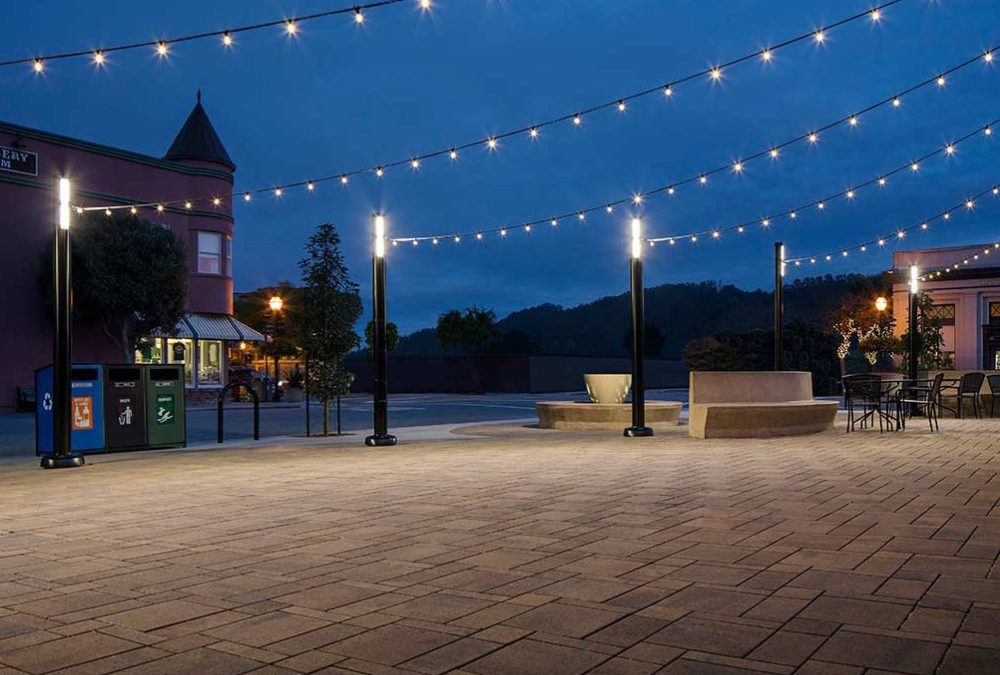With such a variety of materials available for hardscaping — from slate to river stone, and from concrete to steel, why has Unit Paving chosen to specialize in permeable pavers? Why, for that matter, do so many of our customers choose this option over all their others, and what do they see that you might be missing? Good questions, one and all. Let’s dig into the answers.
What Are Permeable Pavers?
Pavement exists in two forms, impervious and pervious. The former is meant to keep water from flowing through, instead diverting it elsewhere. Pervious pavement made from interlocking permeable pavers allows water to pass through; from there, it’s filtered through a substrate and the underlying soil, removing many pollutants and returning water to the soil.
The Benefits of Permeable Pavers
Permeable pavers have been in use since the days of ancient Rome — and some of those paved surfaces endure to this day in the many places where the Roman Empire built its roads. Your paved surface may not last for thousands of years, but neither should you worry about its durability.
Permeable pavers are also environmentally friendly and sustainable. You can get LID and LEED credits for them because they reduce stormwater runoff, reduce the heat island effect, limit the need for complex drainage, and even treat rainwater that’s contaminated by oil, fertilizer, and other pollutants.
How You Can Use Permeable Pavers
Permeable paver products are highly versatile. We take them for granted in some applications like residential walkways and driveways. However, their durability makes them suitable for commercial and municipal use as well. That includes parking lots, pedestrian plazas, and even roads with a high volume of traffic.
But it doesn’t stop there. The large number of colors, shapes, and textures available mean that those same pavers can be used to build an enclosure for your barbecue grill, a durable retaining wall, a fire pit, and numerous other hardscaping designs.
Permeable Paver Costs
You might think that something which manages to be versatile, durable, and attractive must also be expensive. However, when you’re weighing the cost of permeable pavers, it helps to look at the big picture — especially relative to traditional materials like asphalt and concrete.
Concrete and asphalt paving have a reputation for being durable, quick, and inexpensive. The truth is somewhat more complex. Site preparation is more time, labor, and material intensive than it is for permeable pavers. That, in turn, leads to higher prices. Furthermore, a permeable paver surface requires less finishing in the short term and less maintenance in the long term. Both of those things save money.
Permeable Pavers from Unit Paving
With so many benefits, it should be clear why permeable interlocking concrete pavers are a sustainable, durable, and cost-effective choice. However, that isn’t the only important choice you’ll be making; you also need to choose the right pavement contractor, which is precisely why so many in North and South Carolina call on Unit Paving when the time comes for anything from a quick driveway installation to the hardscape design for a ballpark or a city center. We are proud to hold ICPI Certified Installer and Green Advantage Environmental hardscape installer certifications, and — perhaps most importantly — proud of the results we’ve delivered for nearly three decades’ worth of clients. Call Unit Paving today to consult on your next paving project, or for answers to your permeable paver questions.

